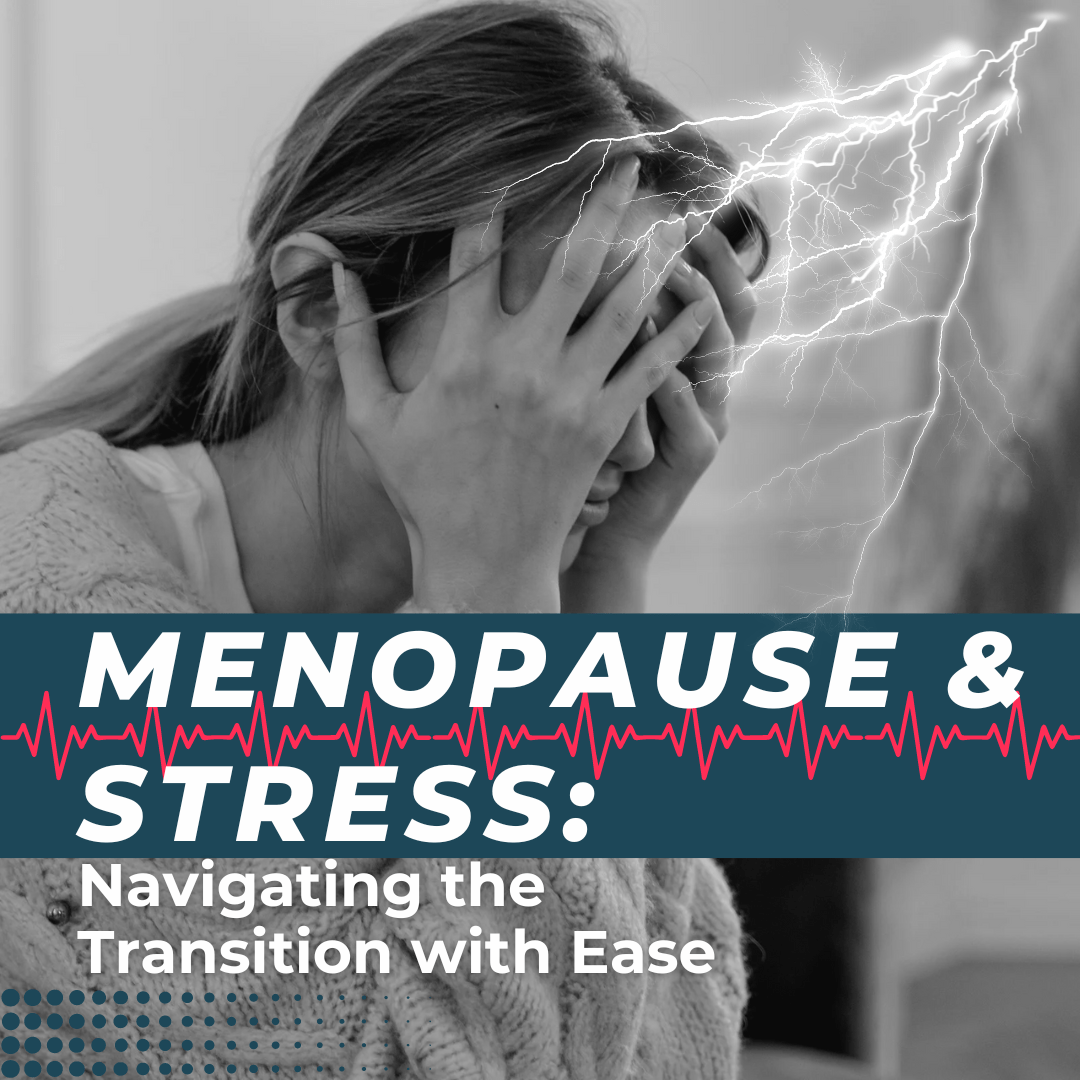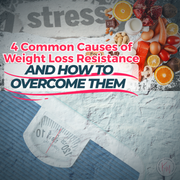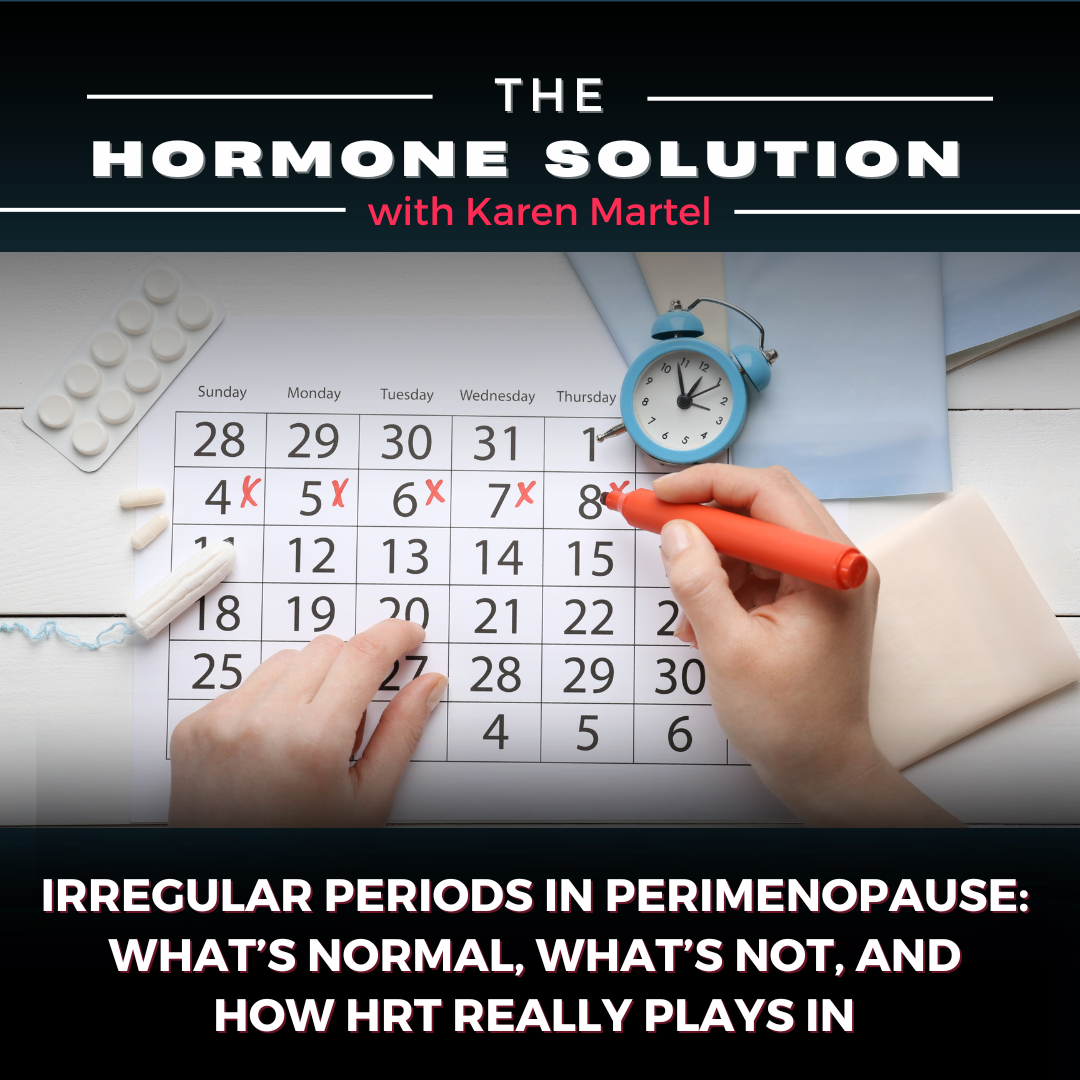
Menopause & Stress: Navigating the Transition with Ease
Menopause is a major milestone in a woman's life, marking the end of monthly cycles as the ovaries stop producing estrogen and progesterone. This transition, known as perimenopause, can start anywhere from 2 to 10+ years before your last period. During this time, fluctuating hormone levels can send various body systems on a wild ride, impacting everything from bones and the nervous system to cardiovascular health, metabolism, and stress response. Many women notice big changes in their quality of life, sleep, mental health, weight management, and stress levels during this phase. So, buckle up—it’s a journey, but you’re not alone!
The 50 SHADES OF STRESS
Stress comes in many forms—physical (like exercise), toxic (EMF, heavy metals, and other nasties), emotional (like work-related pressure), short-term (like a minor fender bender), or long-term (like major life changes). Think of stress as a buffet with way too many options, and cortisol is the head chef in charge of whipping up our response.
Produced by the adrenal glands, cortisol is like our body's built-in alarm clock, keeping us ready to tackle the day. It’s essential for regulating blood sugar, enhancing insulin sensitivity, reducing inflammation, and mobilizing energy. But just like a strong cup of coffee, we need cortisol in the right amounts to stay balanced.
The hypothalamic-pituitary-adrenal (HPA) axis manages our cortisol response. When stress hits—whether from pain, fear, or anxiety—the HPA axis jumps into action, triggering cortisol release. While a bit of short-term stress (like exercise) can be like a turbo boost, chronic stress is more like having your foot stuck on the gas pedal, leading to a health crash.
Good stress uses cortisol to give you an energy and focus boost. This kind of stress is short-term, so after it passes, cortisol levels drop, allowing your immune system to recover and your body to rest. On the flip side, bad stress—like ongoing work pressures or personal dramas—sticks around much longer. While cortisol initially helps you tackle the problem, chronic stress keeps those levels high, which can lead to persistently high blood sugar and a weakened immune system. So, remember to take a breather and let your body reset before it turns into a soap opera starring your adrenal glands!
Excess Cortisol from Acute Stress
When stress lingers like a bad guest who won't leave, your body gets creative in managing the damage from chronic cortisol exposure. It either converts active cortisol into cortisone (think of it as putting the hyperactive kid in a timeout) or blunts the signal to release more cortisol. But here's the kicker: this also lowers DHEA levels, which are super important for women's hormones, especially post-menopause.
Stress can also throw a wrench into your cortisol rhythm. Normally, cortisol peaks in the morning to kickstart your day and gradually winds down by bedtime. But when things go haywire, you might end up with low morning cortisol (hello, groggy mornings) and high nighttime cortisol (goodbye, restful sleep). Even if your daily cortisol levels look okay on paper, a flattened curve can sneakily cause weight gain, metabolic hiccups, immune dysfunction, depression, and a bunch of other health issues.
The Cortisol Cycle and Its Disruptions
Cortisol is like your body's personal barista, giving you that morning jolt and tapering off as the day progresses. But when this cycle gets out of whack—thanks to things like poor sleep or chronic stress—you might find yourself wide awake at midnight or dragging in the morning. This disruption can lead to a host of health problems, including weight gain, metabolic issues, immune dysfunction, and mood disorders. So, keeping your cortisol on its natural cycle is as important as making sure your favorite coffee shop gets your order just right!
The Connection Between Menopause and Stress:
Stress during menopause can make many symptoms worse, like adding fuel to an already blazing fire. Here’s how:
- Hormone Imbalance: Chronic stress can throw your hormone levels even more out of whack, adding to the usual hormonal rollercoaster of menopause.
- Menopausal Symptoms: Stress can turn up the heat on hot flashes, mood swings, and insomnia, making them feel like an overdone drama.
- Bone Health: Lower estrogen levels increase the risk of osteoporosis, and high cortisol can make things worse by reducing bone density.
- Cardiovascular Health: Estrogen helps protect your heart, so its decline raises cardiovascular risks. Add high cortisol to the mix, and it’s like your heart’s got a bad roommate.
- Emotional Health: Stress can amplify anxiety, depression, and mood swings, turning a minor irritation into a full-blown soap opera.
Hormone Testing and Management
Get the Full Picture: Consider adrenal panels along with sex hormone measurements, like those from the DUTCH test, to understand your hormonal health completely.
Lifestyle Strategies
- Walking: Helps reduce cortisol levels.
- Yoga and Meditation: These practices can help balance cortisol levels and make you feel more Zen than frazzled.
- Journaling: Writing about your goals and feelings can help reset a stressed HPA axis and keep chronic stress in check.
- B-Vitamins: These can support healthy circadian rhythms and keep your morning cortisol levels from going rogue.
- Practicing a healthy circadian rhythm: Aligning your daily routines with your natural biological clock can improve sleep quality, regulate hormone production, and enhance mood and mental health.
Supplements and Adaptogens
- Herb/Mushroom Adaptogens: These can help keep cortisol levels balanced, whether you need a boost or a reduction. Some of my favorites are holy basil, ashwagandha, and reishi mushrooms.
- DHEA Supplementation: If your tests show low DHEA, supplementing with it can help counterbalance the effects of high cortisol.
- Progesterone: Progesterone has a calming effect on the brain by interacting with GABA (gamma-aminobutyric acid) receptors. GABA promotes relaxation and reduces anxiety, so progesterone can help soothe stress and anxiety. Check out our over-the-counter progesterone cream here.
Managing stress effectively during menopause is essential for maintaining overall health and well-being. By understanding how cortisol and the adrenal system work, you can take proactive steps to balance your hormones through lifestyle changes, supplements, and possibly hormone replacement therapy. Addressing stress head-on will help you navigate the hormonal shifts of menopause with greater ease, improving your quality of life during this important transition.
For menopausal and peri-menopausal health guidance, join us [HERE].

Find Karen Martel on Apply Podcast
Karen Martel is a Certified Hormone Specialist and Transformational Nutrition Coach dedicated to empowering women through their health journeys.
As the host of the popular podcast The Hormone Solution, Karen tackles the complexities of hormonal health, weight loss resistance, and the challenges that come with perimenopause and menopause.
Her mission is to disrupt outdated narratives surrounding women's health, providing reliable information and practical solutions that help women reclaim their vitality.
Tune in to discover how to embrace life's stages while enhancing overall well-being.





